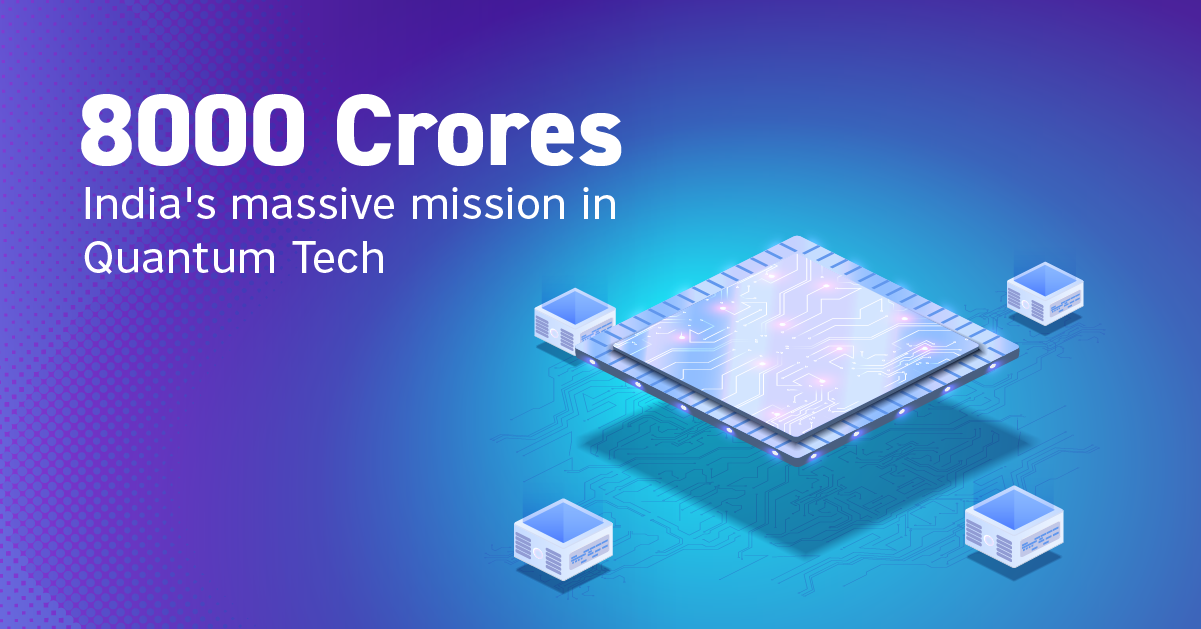A fund that was announced in last year’s budget would be launched to focus on quantum communication, simulation, and sensing and meteorology.
The ₹8,000-crore quantum technologies fund was announced by the Budget in February 2020. It is expected to be launched by August.
Senior officials in the Department of Science and Technology have revealed that the National Mission on Quantum Technologies and Applications (NM-QTA) is under process for final approvals as the overall integrated roadmap for the mission involves several Ministries.
Impact of Covid19
Over the past year, the launch date for this fund has been pushed back citing troubles due to Covid19. This had led to pending approval for its detailed project report outlining the mission statement and other budgetary approvals.
Also See: Cyber warfare from China-part-II
With regards to NM-QTA, the latest updates on the DST website state that as of March 2021, action points on budget sourcing were still awaiting approval from the Department of Expenditure.
KR Murali, Scientist-G & Head, Frontier & Futuristic Technologies Division, DST, has revealed that “NM-QTA is under process for final approvals as the overall integrated roadmap for the Mission involving several Ministries — MeitY, DRDO, ISRO, CSIR, is being finalised. However, DST has already initiated R&D projects under a scheme called Quantum Enabled Science & Technology at a total cost of ₹182 crore for three years and in addition, also established a Quantum Technology Innovation Hub at IISER Pune at a total cost of ₹170 crore for five years. All these activities will be subsumed into NM-QTA Mission after it is formally launched.”
He added, “The Mission involves capturing the vision and aspirations of various stakeholders which takes time in a new area. Now, the Detailed Project Report (DPR) is ready, and accordingly the mission approval process has been initiated.”
Where would be the focus
There is a prevalent idea that the five-year timeline that was previously promised for the Mission will commence only once the approval process is complete. It is contended by the DST. Four key areas of focus for the project are— quantum communication, quantum simulation, quantum computation and quantum sensing and meteorology.
Also See: Cyber warfare from China-part-I
Anil Prabhakar, Department of Electrical Engineering, IIT Madras, is leading the Institute’s collaborations in quantum technology with IBM. He said, “The funding is expected to drive innovation in both science and technology, improve manpower training and encourage a start-up ecosystem in quantum science & technology.”
Also Read: Mars missions-Mariner to Perseverance-Steps taken towards the Red planet
Insiders in the quantum computing start-up ecosystem, however, have a different point of view. They contend that the focus in granting funds is generally towards research and development rather than at the start-up/enterprise level.
Nagendra Nagaraja, is the Founder, and CEO of quantum computing start-up QpiAI. He said: “Delay in the approval of the mission will not affect much, as long as funds are getting deployed effectively to enable quantum computing technology in India. Funds should be given to both high-quality start-ups and academia. It should not be limited to either one of them.”
Start-up funds
Abhishek Chopra, is the Founder & CEO of BosonQ Psi, a quantum computing SaaS-based enterprise. He commented that funding from the government for burgeoning quantum technologies start-ups is necessary.
Chopra said, “At the moment investor interest in quantum technologies, especially quantum computing is extremely limited. In this scenario, it becomes hard for start-ups to invest into core R&D and hire the immense tech talent that India has to offer.” He further added that investment into quantum technologies in India is necessary.
Rohini Srivathsa is National Technology Officer in Microsoft India. She said that quantum has the potential to disrupt how we think about computing and to solve some of the toughest challenges the world faces today, whether in agriculture, healthcare or climate change.
She added, “For India to leverage the full potential of quantum computing, we need to accelerate R&D, technology development, skilling, and invest in building a strong industry ecosystem in the country.”





